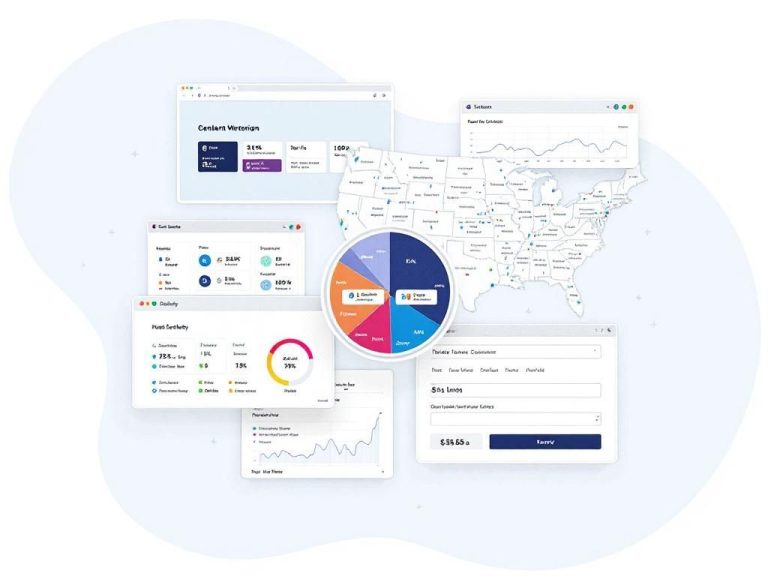In the rapidly evolving landscape of data science, managing machine learning models efficiently is crucial. The integration of MLOps—short for Machine Learning Operations—bridges the gap between development and operations, ensuring seamless deployment, monitoring, and governance of ML models. This article delves into some of the best MLOps solutions available today, highlighting their key features, benefits, and use cases for organizations looking to enhance their data science practices.
Understanding MLOps
MLOps is a set of practices that aim to deploy and maintain machine learning models in production reliably and efficiently. By applying DevOps principles to machine learning, organizations can automate workflows, collaborate better across teams, and ensure continuous delivery of models. Here are some fundamental components of MLOps:
- Model Versioning: Keeping track of different iterations of models to ensure reproducibility.
- Continuous Integration/Continuous Deployment (CI/CD): Automating the deployment process for rapid updates and enhancements.
- Monitoring and Logging: Tracking model performance and logging relevant data to identify potential issues.
- Collaboration Tools: Facilitating teamwork between data scientists and IT operations.
Leading MLOps Solutions
1. MLflow
MLflow is an open-source platform that simplifies and streamlines the machine learning lifecycle. It provides tools for tracking experiments, packaging code into reproducible runs, and sharing and deploying models. Key features include:
- Experiment Tracking: Log metrics, parameters, and artifacts for model comparison.
- Model Registry: Manage and version models for deployment.
- Integration: Works with popular ML libraries and frameworks.
2. Kubeflow
Kubeflow is a Kubernetes-native platform that allows data scientists and ML engineers to build, deploy, and manage machine learning workflows on Kubernetes. Its features include:
- Pipeline Orchestration: Define and execute ML workflows with reusable components.
- Model Serving: Deploy models with built-in support for TensorFlow, PyTorch, and more.
- Scalability: Easy to scale with Kubernetes for efficient resource management.
3. DataRobot
DataRobot is a platform focused on automating the end-to-end machine learning workflow. It caters to both novice and expert data scientists, providing tools for data preparation, model training, and deployment. Notable features include:
- Automated Machine Learning: Automatically generates models based on input data.
- Model Performance Monitoring: Continuously evaluates model performance against new data.
- Collaboration Features: Share insights and results with team members easily.
4. TFX (TensorFlow Extended)
TFX is an end-to-end platform specifically designed for TensorFlow applications. It provides a robust production-ready framework to deploy and manage ML workflows. Key features include:
- Data Validation: Ensure data quality and integrity before training.
- Model Analysis: Evaluate performance metrics and gain insights about models.
- Production Pipelines: Create scalable ML pipelines to serve models effectively.
5. SageMaker
Amazon SageMaker is a comprehensive cloud-based service that provides every step of the machine learning process, from building to training and deploying models. Its features include:
- Built-in Algorithms: Access a variety of pre-built algorithms for quick model development.
- Notebook Instances: Interactive notebooks for model training and experimentation.
- AutoML: Automatically find the best model for your data.
Choosing the Right MLOps Solution
When selecting an MLOps solution, it’s important to consider several factors that can significantly impact your project’s success:
Key Considerations:
- Scalability: Ensure the platform can grow with your data and workload demands.
- Integration: Check compatibility with existing tools and technologies.
- User Experience: Evaluate the ease of use and learning curve.
- Community and Support: Look for active user communities and vendor support options.
Best Practices for Implementing MLOps
Adopting MLOps requires not only the right tools but also adherence to best practices that promote effective collaboration and successful deployment:
1. Establish a Clear Workflow
Define a standard process for model development, testing, and deployment to streamline operations and improve efficiency.
2. Invest in Automation
Automation tools help reduce manual effort and minimize errors. Implement CI/CD for continuous integration and deployment of models.
3. Foster Collaboration
Encourage communication between data science and IT teams to ensure alignment on goals and objectives.
4. Monitor Performance Continuously
Set up monitoring systems to track model performance after deployment and make adjustments as needed to ensure accuracy.
Conclusion
The landscape of MLOps solutions is diverse, offering various tools and platforms that cater to different needs within the data science community. By understanding the strengths and capabilities of these solutions, organizations can effectively manage their ML workflows, from development to deployment, ensuring that their models deliver value consistently. Embracing MLOps not only enhances operational efficiency but also fosters innovation and collaboration in the pursuit of advanced analytics and insights.
FAQ
What are MLOps solutions?
MLOps solutions refer to a set of practices and tools that aim to streamline the deployment, monitoring, and management of machine learning models in production environments.
Why are MLOps important for data science?
MLOps are crucial for data science as they enhance collaboration between data scientists and IT operations, improve model reliability, and accelerate the deployment of machine learning models.
What are the key features to look for in MLOps solutions?
Key features to look for include model versioning, automated deployment, monitoring and logging, collaboration tools, and support for scalable infrastructure.
How do MLOps solutions support continuous integration and delivery?
MLOps solutions support continuous integration and delivery by automating the workflows for training, testing, and deploying machine learning models, ensuring that updates can be rolled out efficiently.
Can MLOps solutions integrate with existing data science tools?
Yes, most MLOps solutions are designed to integrate seamlessly with popular data science tools and frameworks, enabling teams to leverage their existing investments.
What are some popular MLOps tools in the market?
Some popular MLOps tools include MLflow, Kubeflow, TFX (TensorFlow Extended), and DataRobot, each offering unique features tailored to different aspects of the MLOps lifecycle.




